Have you ever felt like someone is listening in on your conversations while you are in your car? You may be right. Due to advances in technology, it has become easier for people to hide listening devices or trackers in cars.
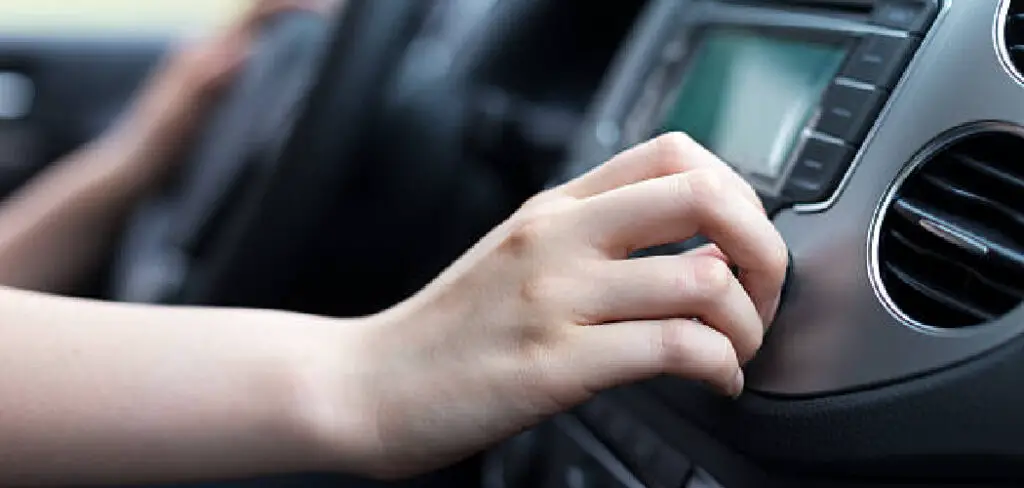
While this may sound like something straight out of a spy movie, it is very real and can be dangerous if such a device is not detected and removed as soon as possible. In this blog post, we will discuss how to detect a listening device in your car.
Can You Detect a Listening Device in Your Car?
Have you ever worried that someone may listen to your conversations while driving? Well, it is possible, as there are a number of ways that listening devices can be hidden inside your car.
Whether you feel like your privacy is being compromised or if you are simply curious, there are several steps to detecting any unwanted surveillance in your automobile. First, it is important to keep an eye out for abnormal wiring or suspicious attachments, as many individuals secretly use inconspicuous components to attach recording devices.
Metal detectors and RF detectors also have the capability to detect these devices, so it could be useful to access these tools if you think someone may have planted something inside your car. Searching for signs of intruders and ensuring the security of private discussions should be a top priority.
Why Should You Detect a Listening Device in Your Car?
Your car should be your haven, but that sense of security may be compromised if you have a listening device. It could belong to someone who is spying on you, so it’s important to detect them as soon as possible. Not only can they hear what is being said inside the car, but they can also monitor where you are going and when.
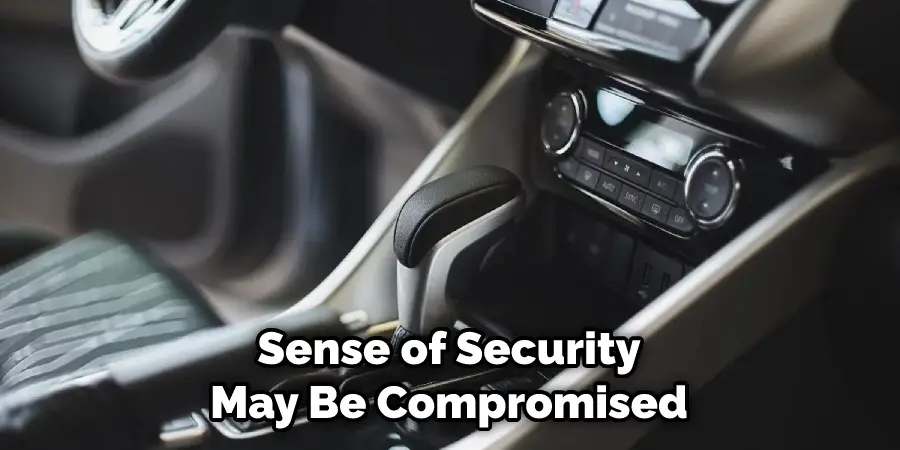
Listening devices are very small and are often quite hard to spot, so if you have suspicions that someone has planted one of these reconnaissance tools in your vehicle, then it’s time to take action by getting a professional bug check done. Invest in your safety and ensure there are no suspicious listening devices in your car — for peace of mind.
5 Ways to Tell if Your Car Has a Listening Device
1. Check for Physical Signs of Tampering.
If you suspect that your car has been bugged, you should first check for physical signs of tampering. This includes things like new or different wires in the dash or under the seats, new or missing screws in the panels, or strange devices that have been installed in the car. If you see any of these things, it’s possible that a listening device has been installed in your car.
2. Listen for Strange Noises.
Another way to tell if your car has a listening device is to listen to strange noises. If you hear clicking, static, or other strange noises coming from your car’s radio or speakers, it’s possible that there is a bug installed in the system.
3. Check for Unusual Behavior in Your Car.
If your car starts behaving oddly, it could be a sign that it has been bugged. This includes things like the doors locking or unlocking on their own, the windows rolling up or down on their own, or the engine starting or stopping on its own. If your car starts doing any of these things, it’s possible that someone has installed a listening device in it.
4. Check Your Phone for Strange Activity.
If you’re using a cell phone in your car, it’s possible for someone to bug the phone and listen in on your conversations. To check for this, look for strange activity on your phone, such as odd text messages, missed calls from unknown numbers, or unexpected data usage. If you see any of these things, it’s possible that your phone has been bugged and someone is listening to your conversations.
5. Talk to A Professional About Having Your Car Swept for Bugs.
If you suspect that your car has been bugged but you’re not sure how to tell, the best thing to do is talk to a professional about having your car swept for bugs. A professional can use special equipment to detect and remove listening devices from your car.
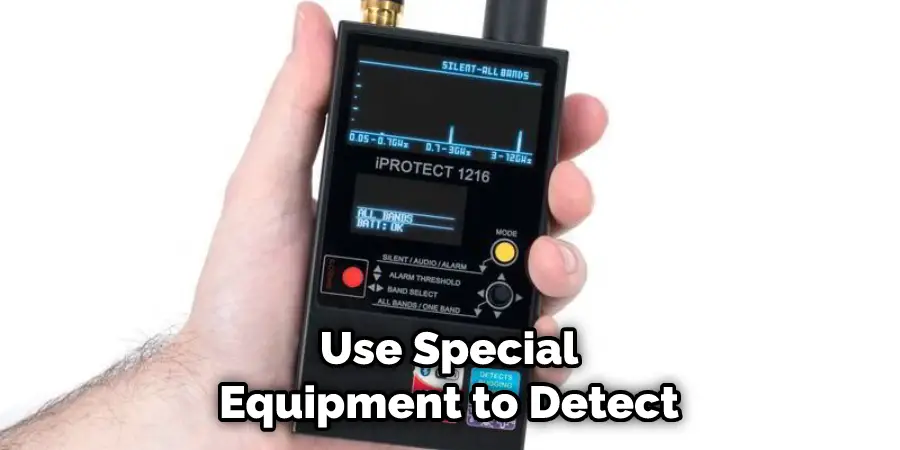
9 Steps to Follow on How to Detect a Listening Device in Your Car
Step 1: Look for Anything that Appears out Of Place or Unusual
The first step is to look for anything that appears out of place or unusual. This can include wires that do not appear to lead anywhere, strange marks on the dashboard or upholstery, and any unfamiliar objects that seem to have been added after you brought your car home from the dealership.
If you find anything suspicious, make sure to take note of it so that further investigation can be conducted.
Step 2: Sweep Your Vehicle’s Interior with An Rf Detector
Your next step should be to perform a thorough sweep of the vehicle’s interior with an RF detector. An RF detector is a tool used by professionals to detect radio frequencies emitted by electronic devices such as listening devices and trackers.
These detectors are available online or at most electronics stores and are relatively inexpensive compared to other security solutions available on the market today. However, it is important to note that RF detectors work best when the vehicle is off and parked due to the interference caused by running engines and moving vehicles.
Step 3: Listen for Unusual Sounds
The next step is to listen to any strange sounds from within the car. Listening devices are typically designed to record audio, so you should look for unusual noises such as clicking, buzzing, or radio static.
If you suspect that there might be a listening device in your car, turn off all other noises, such as the radio or air conditioning, to better hear any possible noises.
Step 4: Check for Unusual Behavior From Your Car’s Electronics
Another way to detect a listening device is to look for unusual behavior from your car’s electronics. For example, if you notice that components such as the navigation system or dashboard display are acting strangely or not responding to commands as they normally would, it is possible that a listening device has been installed in your vehicle.
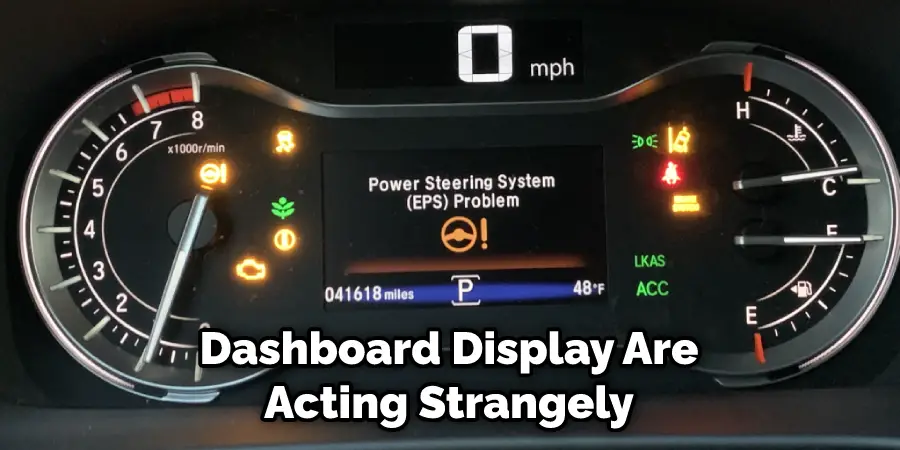
Step 5: Disable Any Existing Connected Devices
If you have connected devices such as a Bluetooth speaker or GPS tracker installed in your car, make sure to disable them while attempting to locate a listening device. These devices can interfere with the signal of an installed listening device, making it harder to detect.
Step 6: Investigate Any Unfamiliar People Who Have Accessed Your Car Recently
The next step is to investigate any unfamiliar people who have recently had access to your car. Suppose you notice any suspicious behavior from someone who has had access to the vehicle, such as frequent visits or strange requests for information about how to operate or repair the car. In that case, it is possible that they may have installed a listening device.
Step 7: Contact a Professional
If you suspect that there might be a listening device in your car but are unable to locate it on your own, your best option is to contact a professional for assistance. A qualified security expert will be able to examine your car and use specialized tools to detect the presence of any listening devices. They can also provide guidance on how to remove the device, if found.
Step 8: Check Your Phone for Strange Activity
If you frequently use your cell phone in your car, it is possible that someone could have bugged your phone to listen in on your conversations. Make sure to periodically check your phone for strange activity such as unexpected data usage, missed calls from unknown numbers, and odd text messages. If you notice any of these things, it is possible that your phone has been bugged.
Step 9: Be Aware of Your Surroundings
While it may not directly help in detecting a listening device, being aware of your surroundings can prevent future bugging attempts. If you are in public or parked in a public place, be cautious of anyone who might be trying to access your car or tamper with it. Keep an eye out for suspicious activity and report any concerns to the authorities immediately. Being vigilant is key in protecting yourself against potential bugging attempts.
That’s it! You’ve now learned how to detect a listening device in your car. By following these steps, you can ensure that your vehicle is free from any unwanted eavesdroppers.
Things You Need to Know Before Detect a Listening Device in Your Car
It is important to be aware of potential security threats, including listening devices hidden in your car. However, before attempting to detect a listening device, it is essential that you are familiar with the laws applicable in your locality pertaining to privacy and surveillance.
If a listening device is found in your vehicle, you may need to consult with an attorney, as some local laws can make it illegal for you to remove or disable the device.

Additionally, if there are any doubts about tampering with the device itself, seeking professional help from a security or investigative expert could provide peace of mind by confirming any suspicions and helping you formulate a plan for the next steps.
Benefits of Detect a Listening Device in Your Car
An undetected listening device in your car can make you a vulnerable target for criminals. Therefore, having a device like this detected and removed is immensely beneficial as it provides great peace of mind, knowing that your spaces are no longer subject to potential unauthorized listening.
Not only does this detect possible threats, but it also helps you adhere to the laws of many states, which require the disclosure of vehicle recording devices. This way, you can enjoy the safety and tranquility of your car without the worry of criminal activity lurking in the shadows.
6 Common Mistakes People Make When Trying to Detect a Listening Device in Your Car
1. Not Knowing What You’re Looking For
One of the most common mistakes people make when trying to detect a listening device is not knowing what they’re looking for. There are various types of listening devices, and each one looks different. Finding a listening device in your home or office will be very difficult if you don’t know what you’re looking for.
2. Not Checking All Potential Hiding Spots
Another mistake people make is not checking all potential hiding spots for a listening device. Listening devices can be hidden just about anywhere, so it’s important to check all possible hiding spots, including under furniture, in drawers, and in light fixtures.
3. Not Using the Right Tools
Another common mistake people make is not using the right tools to detect a listening device. There are various detection devices available on the market, and each has its own strengths and weaknesses. Choosing the right tool for the job; otherwise, you may miss a hidden device.
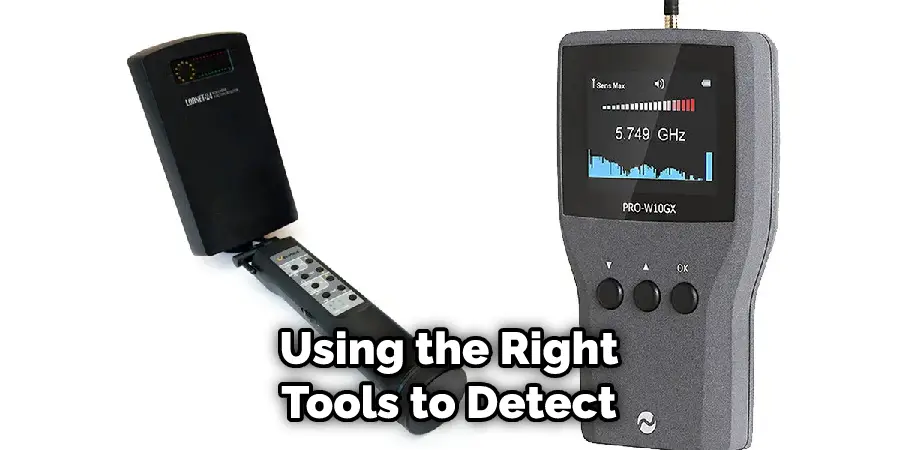
4. Not Being Thorough
A fourth mistake people make is not being thorough when searching for a hidden listening device. It’s important to search every room in your home or office and any vehicles you frequently use. Additionally, it’s important to check for devices hidden in unusual places, such as inside walls or under floorboards.
5. Not Paying Attention to Your Surroundings
Another mistake people make is not paying attention to their surroundings when detecting a listening device. It’s important to be aware of your surroundings at all times, as this will help you spot any suspicious activity that may be related to a hidden device.
For example, if you notice someone loitering near your home or office, it may indicate that they’re trying to plant a listening device.
6. Giving up Too Soon
Finally, another common mistake people make is giving up too soon when trying to detect a listening device. Finding a hidden device can be difficult, and it may take some time and patience to succeed.
If you give up too soon, you may never find the device, and it will continue to collect information about you without your knowledge.
Can Radio Frequency Detectors Detect Hidden Microphones Inside Cars?
Radio Frequency (RF) detectors are extremely effective tools for detecting hidden cameras or microphones in cars. The detectors can pick up the low-frequency signals emitted by such devices, making them great choices for both home and vehicle security.
With an RF detector, you can easily spot a hidden microphone or camera inside a car, as these devices will quickly identify any transmissions. The detector can also detect any changes to existing transmission frequencies, enabling you to locate a suspicious listener more quickly and effectively than ever before.
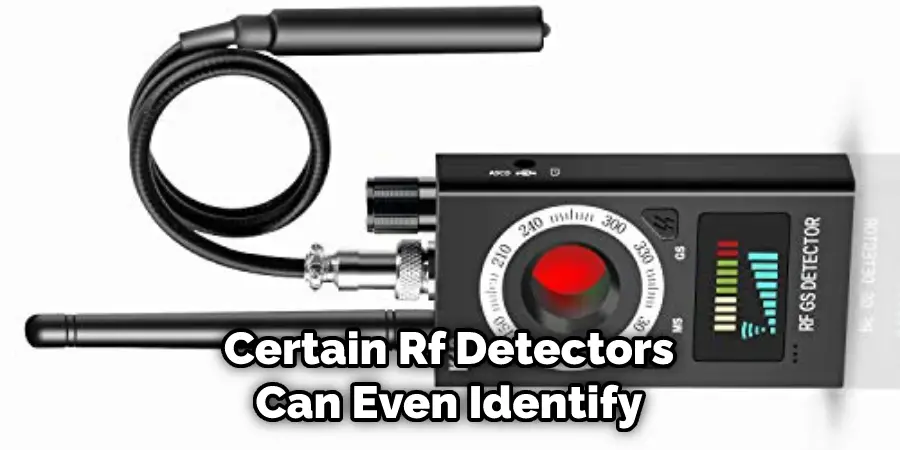
In addition to this, certain RF detectors can even identify frequencies outside of the car’s walls, allowing you to check if audio is being captured from nearby sources. As such, it is clear that an RF detector is an invaluable criminology tool that provides much-needed protection in the modern age.
Frequently Asked Questions:
Q: How Can I Protect My Car Against Potential Listening Devices?
A: To protect your car against potential listening devices, you can regularly conduct thorough inspections of your vehicle and surroundings, be aware of any suspicious activity or individuals, and use an RF detector to scan for any hidden transmissions. Additionally, you can invest in a good car alarm system and park your vehicle in a secure and well-lit area.
Q: Can I Legally Remove a Listening Device From My Car?
A: The legality of removing a listening device from your car depends on the laws in your local jurisdiction. In some states, it may be illegal to remove or tamper with recording devices without the consent of all parties involved. It’s important to consult with an attorney or legal expert before taking any action.
Q: How Often Should I Check for Listening Devices in My Car?
A: It’s recommended to check for listening devices in your car at least once every few months, especially if you have reason to believe that someone may be targeting you. However, if you have a high-profile job or are frequently in the public eye, it may be beneficial to check for listening devices more frequently.
Q: What Should I Do If I Find a Listening Device in My Car?
A: If you find a listening device in your car, it’s important to take action immediately. Depending on the laws in your area, you may need to contact the authorities and file a report. It’s also recommended to seek the help of professionals who specialize in detecting and removing listening devices to ensure that your car is completely free of any potential threats.
Conclusion
Detecting listening devices or trackers in your car can be difficult but not impossible. However, with the right tools, knowledge, and resources at hand, anyone can ensure their vehicle remains secure against unwanted surveillance or tampering activities.
Investing in an RF detector or a comprehensive car security system with real-time monitoring capabilities can help provide peace of mind, knowing that unauthorized individuals won’t be able to listen in on conversations inside your car without being detected quickly and efficiently! Thanks for reading our post about how to detect a listening device in your car.
